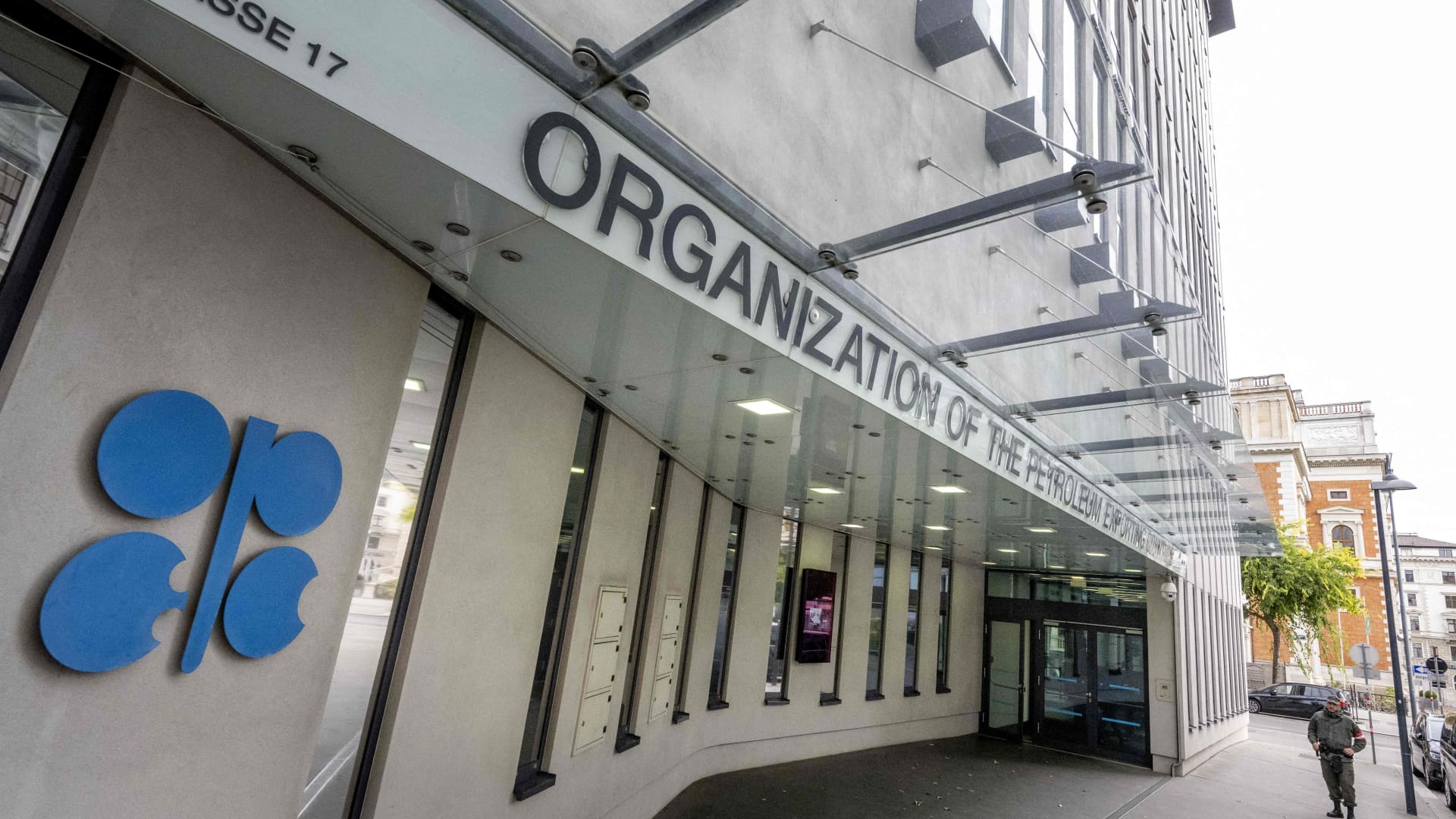Oct 5, 2022
WASHINGTON -- A desperate, last-ditch effort by the Biden White House to convince OPEC+ members to vote against a proposed production cut at Wednesday’s meeting in Vienna failed, as the oil-producing cartel announced a larger-than-expected output cut of 2 million barrels per day.
Shortly after the announcement, President Joe Biden told reporters at the White House he thought the cut was “unnecessary,” although he said he had yet to see all the details.
Following Biden’s remark, White House officials said the president was “disappointed by the shortsighted decision by OPEC+ to cut production quotas while the global economy is dealing with the continued negative impact of Putin’s invasion of Ukraine.”
Until Wednesday, the White House had avoided making any public comments that suggested there was friction between Washington and the leading OPEC member states.
But behind the scenes, members of the Biden administration had been “pulling out all the stops,” reaching out to partners in the Persian Gulf and warning of drastic consequences to the global economy if a production cut was announced, according to multiple people familiar with the situation.
The White House even tried, unsuccessfully, to enlist companies to speak out against a production cut, according to people who asked to remain anonymous to describe private conversations.
Wednesday’s announcement was OPEC’s first major output cut since the early days of the coronavirus pandemic in 2020.
With U.S. midterm elections just a month away, any increase in gasoline prices resulting from higher oil prices would be a political gift to Republicans, who have blamed Biden for the record high gas prices brought on primarily by Russia’s invasion of Ukraine.
As a member of the expanded OPEC+ group, Russia is poised to benefit significantly from the decisions made at Wednesday’s meeting, which was attended in person by Russian Deputy Prime Minister Alexander Novak (below).
The Kremlin is heavily dependent on oil export revenue to fund its war in Ukraine, and its own petroleum production has fallen since the start of the invasion.
The newly announced production cut will buoy Russia’s oil revenue heading into winter, when demand for Russian energy from Europe and Central Asia typically rises.
This is especially important for Moscow given that the European Union is preparing to impose a Russian oil embargo, and G-7 nations are finalizing plans to impose a limit on the price that G-7 nation oil transporters are allowed to pay for Russian oil they plan to ship to Asia and Africa.

 www.cnbc.com
www.cnbc.com
WASHINGTON -- A desperate, last-ditch effort by the Biden White House to convince OPEC+ members to vote against a proposed production cut at Wednesday’s meeting in Vienna failed, as the oil-producing cartel announced a larger-than-expected output cut of 2 million barrels per day.
Shortly after the announcement, President Joe Biden told reporters at the White House he thought the cut was “unnecessary,” although he said he had yet to see all the details.
Following Biden’s remark, White House officials said the president was “disappointed by the shortsighted decision by OPEC+ to cut production quotas while the global economy is dealing with the continued negative impact of Putin’s invasion of Ukraine.”
Until Wednesday, the White House had avoided making any public comments that suggested there was friction between Washington and the leading OPEC member states.
But behind the scenes, members of the Biden administration had been “pulling out all the stops,” reaching out to partners in the Persian Gulf and warning of drastic consequences to the global economy if a production cut was announced, according to multiple people familiar with the situation.
The White House even tried, unsuccessfully, to enlist companies to speak out against a production cut, according to people who asked to remain anonymous to describe private conversations.
Wednesday’s announcement was OPEC’s first major output cut since the early days of the coronavirus pandemic in 2020.
With U.S. midterm elections just a month away, any increase in gasoline prices resulting from higher oil prices would be a political gift to Republicans, who have blamed Biden for the record high gas prices brought on primarily by Russia’s invasion of Ukraine.
As a member of the expanded OPEC+ group, Russia is poised to benefit significantly from the decisions made at Wednesday’s meeting, which was attended in person by Russian Deputy Prime Minister Alexander Novak (below).
The Kremlin is heavily dependent on oil export revenue to fund its war in Ukraine, and its own petroleum production has fallen since the start of the invasion.
The newly announced production cut will buoy Russia’s oil revenue heading into winter, when demand for Russian energy from Europe and Central Asia typically rises.
This is especially important for Moscow given that the European Union is preparing to impose a Russian oil embargo, and G-7 nations are finalizing plans to impose a limit on the price that G-7 nation oil transporters are allowed to pay for Russian oil they plan to ship to Asia and Africa.

White House lobbying fails to prevent OPEC+ production cut
Lower production is likely to drive up prices at the pump, a political gift to Republicans this close to the midterm elections.







